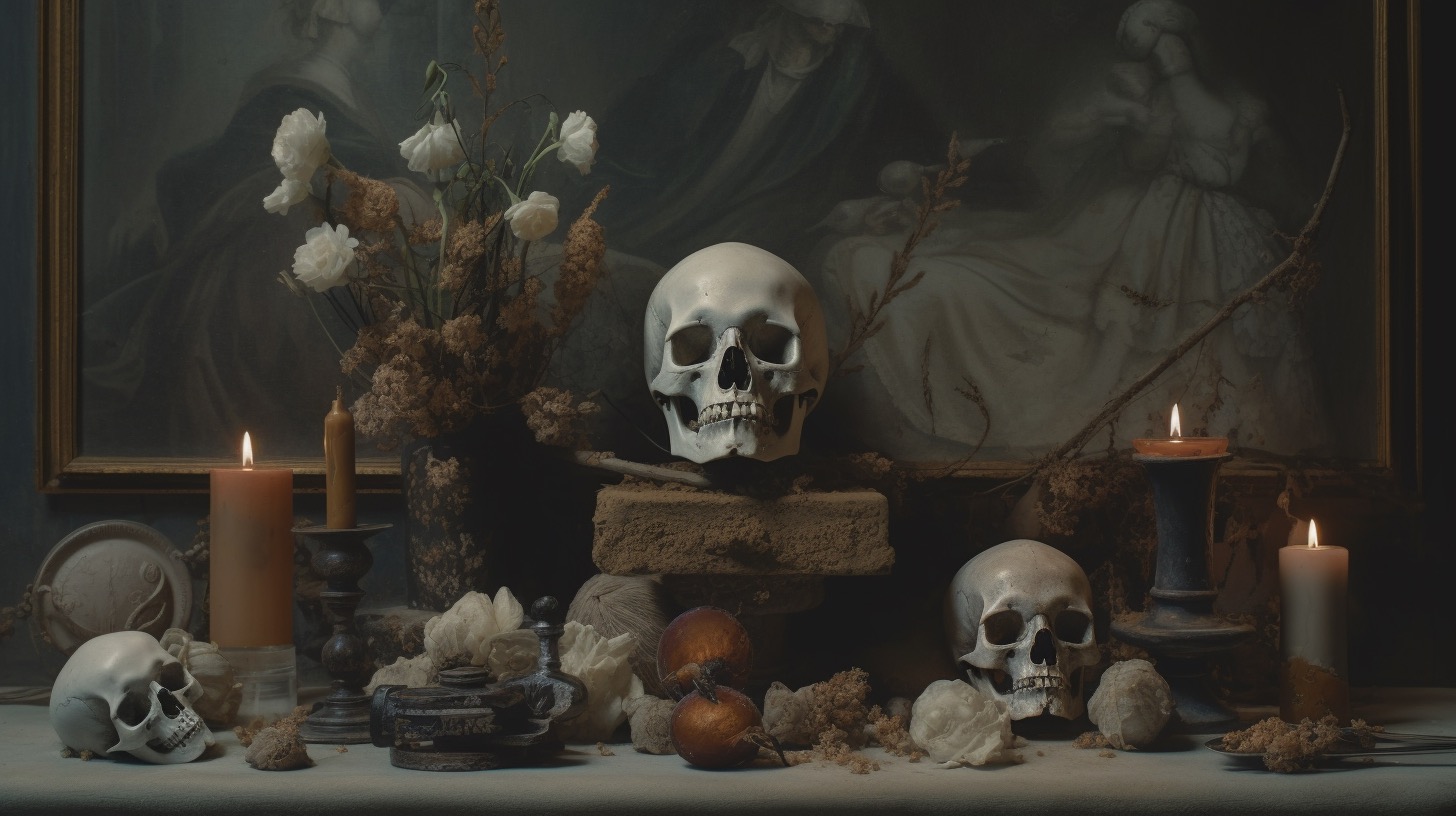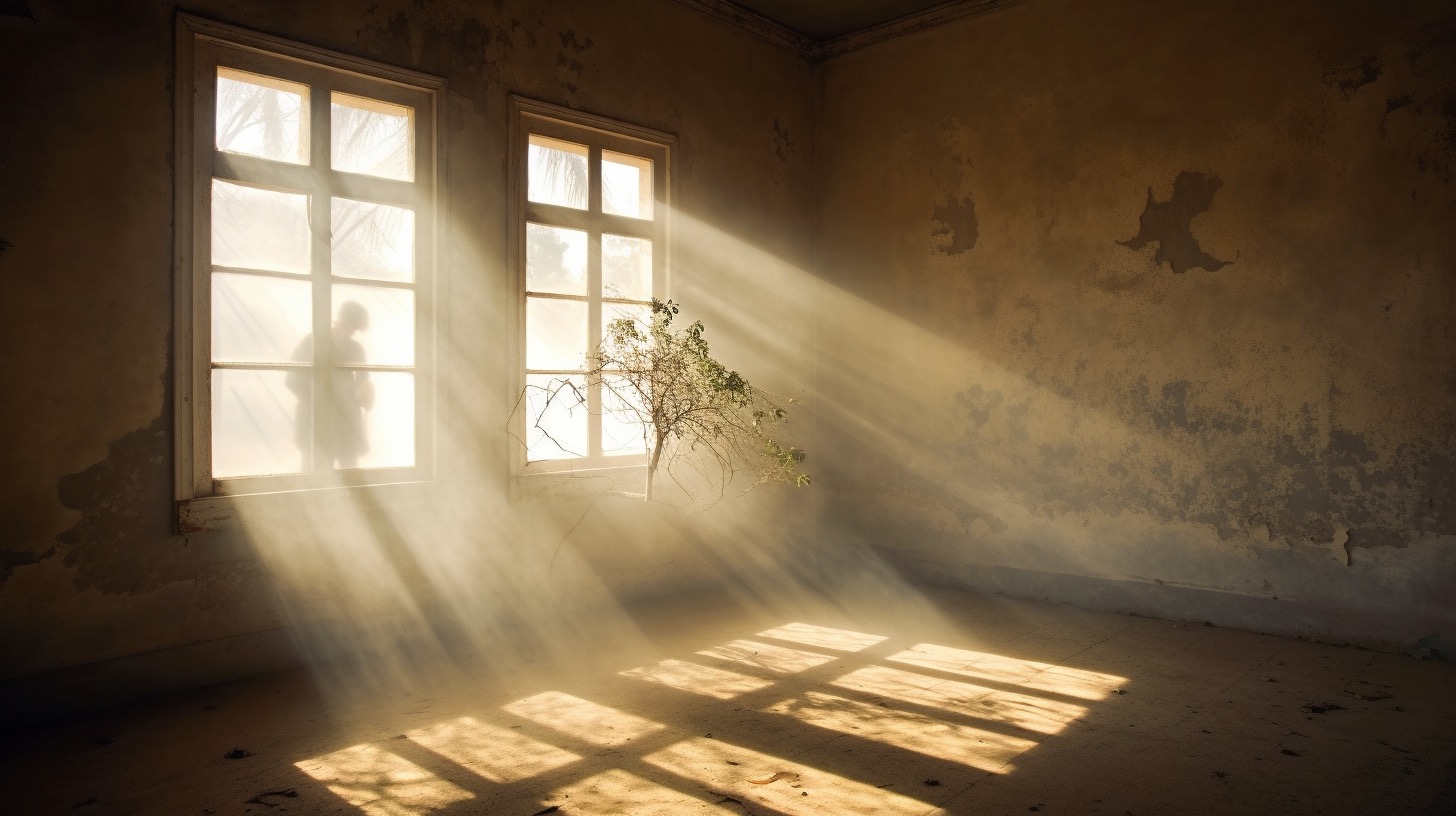This life is short. Fleeting. It vanishes like a mist in the morning sun. Sometimes the good die young. Sometimes the healthy eke out a hundred and change. Still, death overtakes all. Even if the transhumanists manage to store an archive of your artifacts and letters which can be consulted via artificial intelligence, it would not be you. Even if we hope that what we do in life echoes in eternity, or that life everlasting is to come, it is not up to us and we must face death and judgment first.
That we were not the determiners of our births, nor of our fate, ought to humble us. We receive life as a gift. We may only hope for eternal life as a gift.
Memento Mori

Memento mori is a Latin phrase that means “remember that you must die.” It is an artistic or symbolic reminder of the inevitability of death, often represented by a skull, bones, coffin, hourglass, or wilting flowers. The concept has its roots in classical philosophy and Christianity, and has been present in funerary art and architecture since the medieval period.
The author of Ecclesiastes famously lamented the evanescence of life.
2 Teacher: Life is fleeting, like a passing mist.
It is like trying to catch hold of a breath;
All vanishes like a vapor; everything is a great vanity.
3 What good does it do anyone to work so hard again and again,
sun up to sundown? All his labor to gain but a little?
4 One generation comes, another goes;
but the earth continues to remain.
Rage, rage against the dying of the light
For the non-religious existentialists, like Camus, the inevitably of death also seemed to make life absurd. Failing to believe in the God who is there and might make right the suffering and death in this life, he bravely consoled himself with what meaning he could assert by his own actions in this life.
[S]ince the order of the world is shaped by death, mightn’t it be better for God if we refuse to believe in Him and struggle with all our might against death, without raising our eyes toward the heaven where He sits in silence?
Albert Camus, The Plague
Humility and Hope
If a thing makes no difference, it is a waste of time to think about it. We should begin, then, with the question, What difference does Heaven make to earth, to now, to our lives? Only the difference between hope and despair in the end, between two totally different visions of life, between “chance or the dance.” At death we find out which vision is true: does it all go down the drain in the end, or are all the loose threads finally tied together into a gloriously perfect tapestry? Do the tangled paths through the forest of life lead to the golden castle or over the cliff and into the abyss? Is death a door or a hole?
Peter Kreeft
For those who would hope for life everlasting, humility is essential. Jesus conquered death and offers it as a gift to those who would call out to him as their savior and king. Acknowledging our frailty and need for forgiveness and new life requires honesty with ourselves and before God: humility.
Actions and Reflections
- How does your mortality effect your actions today?
- Consider visiting a cemetery or bringing flowers to your elder parents or a nursing home today.
- Are you prepared for your death? What legacy will you leave? On what basis might you hope for life everlasting?
